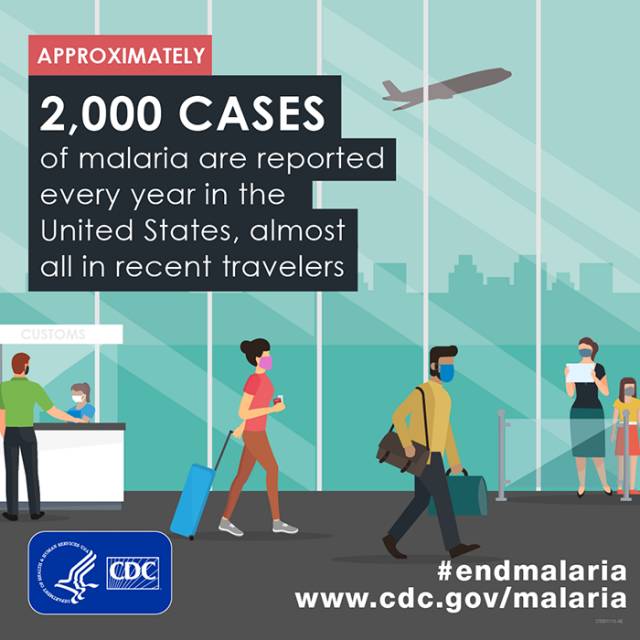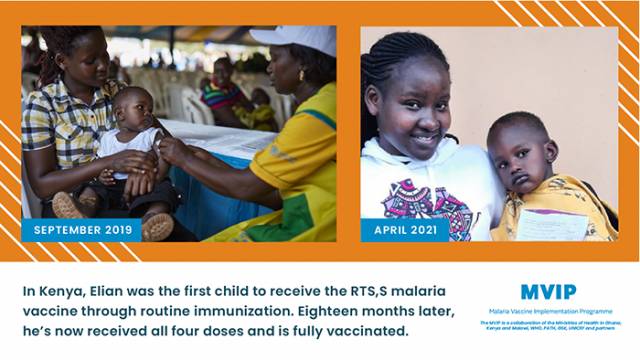You are here
World Malaria Day: Our Work is Not Done
People don’t usually think of malaria affecting Americans in any way, yet upwards of 2,000 Americans become infected with malaria every year by travelling to regions where the disease is still common. And while historic progress has been made, malaria remains a leading cause of preventable illness and death around the world. Every year on April 25, the CDC Foundation joins the Centers for Disease Control and Prevention (CDC) and the global community in recognizing World Malaria Day.
Many people don’t know that CDC grew out of the agency for Malaria Control in War Areas (MCWA), back in 1946. MCWA had worked on preventing malaria in the southeastern U.S. during World War II, so much of the early work done by CDC was concentrated on the control and elimination of malaria in the United States. Thanks to these and other efforts, the disease was ultimately eliminated from the United States by the 1950s.
But the global problem is far from solved. According to CDC, malaria still kills more than 400,000 people around the world every year, and tragically, most of these deaths are among young children.
In recognition of World Malaria Day this year, CDC is sharing the story of an otherwise healthy woman in her 40s who traveled on a mission trip to a sub-Saharan African country in late 2020. After returning home to Tennessee, she fell ill with chills and high fever. She was diagnosed with malaria, and ultimately died from the disease. Her story serves as a reminder that given the global nature of this illness, our work to address malaria is far from over.
In response to this ongoing health threat, the CDC Foundation proudly supports a number of programs related to malaria surveillance, prevention and treatment. For instance, the CDC Foundation is part of a pilot program for the first vaccine to reduce malaria cases in young children in Africa, called The Malaria Vaccine Implementation Program. Coordinated by the World Health Organization (WHO), this program supports the introduction of the RTS,S malaria vaccine in routine immunization in selected areas of Ghana, Kenya and Malawi, and has provided more than 650,000 children with protection against malaria, to date.
In Kenya, the CDC Foundation and CDC work with the Ministry of Health, international and in-country partners to evaluate the impact of the vaccine in preventing severe malaria and death, and the vaccine’s safety in routine use. The RTS,S malaria vaccine could potentially reduce malaria, including life-threatening severe malaria, in fully vaccinated children by 40 percent. Data and information derived from this work will inform a WHO policy recommendation on the broader use of the vaccine in sub-Saharan Africa before the end of 2021.
The CDC Foundation also supports CDC’s malaria research around the world by rearing and maintaining mosquito stocks. The CDC Foundation works to maintain the stocks in CDC’s insectary and ship them to research labs around the world. Researchers use these mosquitoes from CDC to understand how to prevent the spread of diseases carried by mosquitoes, including malaria. Another project is working to make mosquito research more efficient through cryopreservation. In this program, the CDC Foundation partners with Massachusetts General Hospital and the U.S. Department of Agriculture to develop techniques to allow sufficient long-term storage and revitalization of mosquito stocks without the need of constant culture.
Additionally, the CDC Foundation supports projects engaged in detecting and treating malaria. The Foundation currently works with CDC to evaluate malaria rapid diagnostic test (RDT) products to assess their performance and operational characteristics. WHO uses this performance data to inform prequalification decisions and to provide guidance to member states on the use of RDTs for malaria testing.
Some people receiving treatment for malaria in the United States are prescribed a relatively new medication called tafenoquine, which aims to prevent a malaria relapse. We are also working with CDC to review data from state health departments to monitor the effects of this treatment.
We are proud to work with CDC and so many global partners to address this vital global health issue that still affects so many people around the world each year. Learn more about malaria and download new fact sheets on CDC’s website.
The Vector Stock and Reagent Repository for Research program referenced in the blog has been funded in whole or in part with Federal funds from the National Institute of Allergy and Infectious Diseases, National Institutes of Health, Department of Health and Human Services, under Contract No. HHSN272201600013C.
Photo at top of page: © World Health Organization



